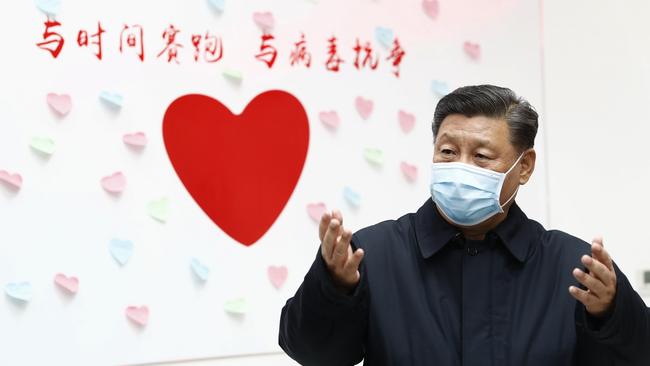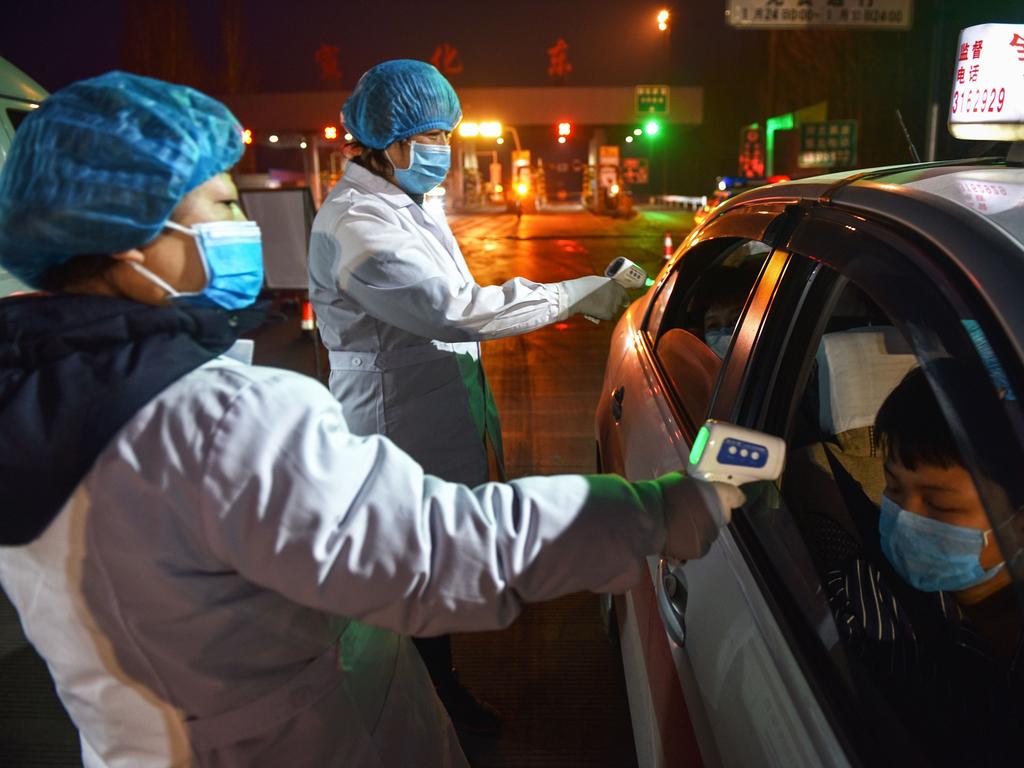Coronavirus: Xi Jinping critics silenced as clampdown gets personal
Xi Jinping has launched a highly personalised defence of his handling of the coronavirus crisis.

Critics are being detained, tunnels through the “Great Firewall” are blocked and official history is being rewritten as Chinese President Xi Jinping defends his leadership of the “People’s War” against the coronavirus outbreak.
Xi and his advisers have launched a highly personalised defence of his handling of the coronavirus crisis, which has killed more than 1,770 people, spread to more than 70,000 cases in mainland China and is expected to postpone the National People’s Congress – China’s major annual political set piece – which had been scheduled for early March.
“From the first day of the year to the present, prevention and control of the epidemic situation is my most concerning issue. I have kept track of the spread of the epidemic situation and the progress of the prevention and control work, and continue to give oral instructions,” Mr Xi said, in a speech published at the weekend in the Communist Party journal Qiushi, or Seeking Truth.
The release of the speech, delivered two weeks ago, came as China clamped down on virtual private networks (VPNs), which allow Chinese to access information banned on the country’s highly censored internet.
ExpressVPN, one of the most popular network providers, told its users that it was “aware of a new escalation in blocks in China”. The site was closed on Friday.
The internet clampdown has been accompanied by the detention of academics, journalists and civil rights lawyers who have criticised the central government’s handling of the virus, officially named COVID-19.
There are reports being shared by China’s human rights networks that Xu Zhiyong, a former lecturer at the Beijing University of Post and Telecommunications, was detained on Saturday in Guangzhou, a port city near Hong Kong.
Less than a fortnight ago the prominent leader of China’s civil rights movement published a highly critical open letter that censors soon deleted from Chinese social media.
“Seven years ago, I appealed to you to lead China to become a nation that respects democracy and the constitution, but in return I was thrown in jail for four years,” Mr Xu wrote.
“And now, your men are still looking for me trying to throw me back in jail again. I don’t think you are a villain, just someone who is not very smart. For the public’s sake, I’m asking you again: Step down, Mr Xi Jinping.”
Mr Xu’s reported detention — which his supporters fear may be indefinite — came after the silencing of Chen Qiushi, a 34-year-old lawyer-turned-citizen journalist who had been reporting from Wuhan, the epicentre of the coronavirus outbreak.
“I am afraid. In front of me is disease. Behind me is China’s legal and administrative power. But as long as I am alive I will speak about what I have seen and what I have heard,” Mr Chen said in a YouTube post on January 30.
“I am not afraid of dying. Why should I be afraid of you, Communist Party?”
Friends said he was forcibly quarantined a week after the post.
YouTube, along with social media sites Twitter, WhatsApp and Facebook, and much of the international media, are blocked by China’s internal censorship, dubbed “the Great Firewall of China”.
Social media platforms allowed in China, such as WeChat and Weibo, are monitored by teams of censors who report and delete posts judged to undermine “political stability”.
The Communist Party-controlled Xinhua news site, which can be accessed without a VPN, said Mr Xi’s speech to the party’s central committee on February 3 was “important”.
“(It) points out that, on the whole, the Central Committee’s judgment of the epidemic situation is accurate, all work deployment is timely, and the measures adopted are also effective,” Xinhua reported.
In his speech, Mr Xi said it was crucial to take actions to make sure “positive energy will always fill the cyberspace”.
“We must control the overall public opinion and strive to create a good public opinion environment,” he told his fellow members of the standing committee, which is made up of the party’s seven most powerful members.
Mr Xi used “I” and “me” a dozen times in the speech, a remarkable number by the normally impersonal standards of the party.





To join the conversation, please log in. Don't have an account? Register
Join the conversation, you are commenting as Logout